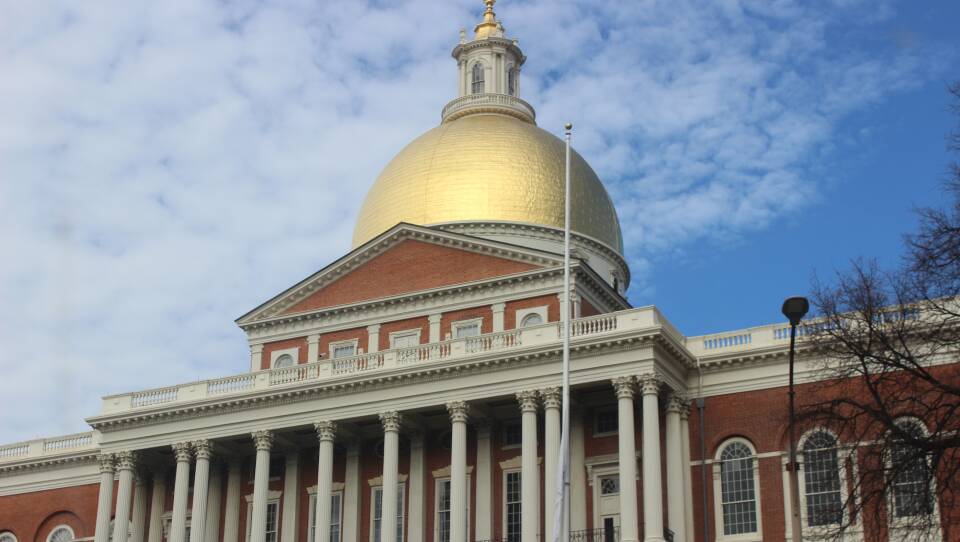A key moment in the legislative process came to pass yesterday, not with a bang but with a lot of paperwork.
Called Joint Rule 10 Day in Beacon Hill jargon, it's the deadline for most legislative committees to act on bills they've had almost a year to review. It can offer one of the biggest clues of how much interest lawmakers have in particular policies. And for some, it can be a death knell, the sign that it’ll probably be at least another two years for lawmakers to take up a bill — if ever.
If you want to see them tackle the often mind-boggling costs of child care, for instance, you might be pleased to see the Education Committee endorsed and advanced a bill focused on access and affordability in early education.
Maybe you rooted for the Newton Teachers Association during its strike. If so, you may be disappointed to see the Labor and Workforce Development Committee decide to kill a bill that would make it legal for public workers to strike.
Or maybe you're hoping rent control could keep your apartment in your price range. In that case, you still won't have an answer — the Housing Committee gave itself an extra 10 or so weeks to decide the fate of a bill that would let cities and towns adopt local rent-control policies.
Whatever you want to see the Massachusetts Legislature do — or not do, as the case may be — you got some hints about the road ahead. But you probably don’t have the full story.
The joint committees reviewing the thousands of bills filed this session don’t have to disclose how lawmakers vote when deciding what legislation to advance, and they don’t have to make written testimony for or against bills available to the public. That means voters might not know how their lawmaker feels, or who’s trying to nudge legislators one way or another.
A bill to shed more light on committee workings — dubbed the Sunlight Act by its supporters — cleared one hurdle last month, earning the endorsement of the Joint Rules Committee and moving on to the Senate Ways and Means Committee.
If the Sunlight Act passes, which is no sure thing, committees would need to post their votes online and provide written testimony to the public upon request. It would also expand the state public records law to cover Gov. Maura Healey’s office.
Act on Mass Executive Director Erin Leahy, whose group backs the Sunlight Act, says the bill is “not just about transparency in and of itself.”
“It’s not an end itself, necessarily, but also a means to an end — a means to a more healthy, robust democracy, where the public has more access, insight and power over what government is doing on their behalf,” Leahy said.
The outlook for the Sunlight Act is at least partly cloudy. The Senate Ways and Means Committee is often a last stop for bills before hitting the floor for a vote by the full Senate, but it's also where many bills end up dying without further action.
Top Democrats who control the bill's fate — Senate President Karen Spilka and Ways and Means Chairman Michael Rodrigues — have avoided tipping their hand so far.
Spilka, on NBC10's@Issue, and Rodrigues, when I asked him in a State House hall last week, both pointed out the Senate has backed committee transparency measures before. But neither said if that will translate into progress for the Sunlight Act.
One thing, though: Senate-only committees do have to disclose their votes, so if there is a vote on the bill, it’ll be plain to see where the members of that committee stand.








